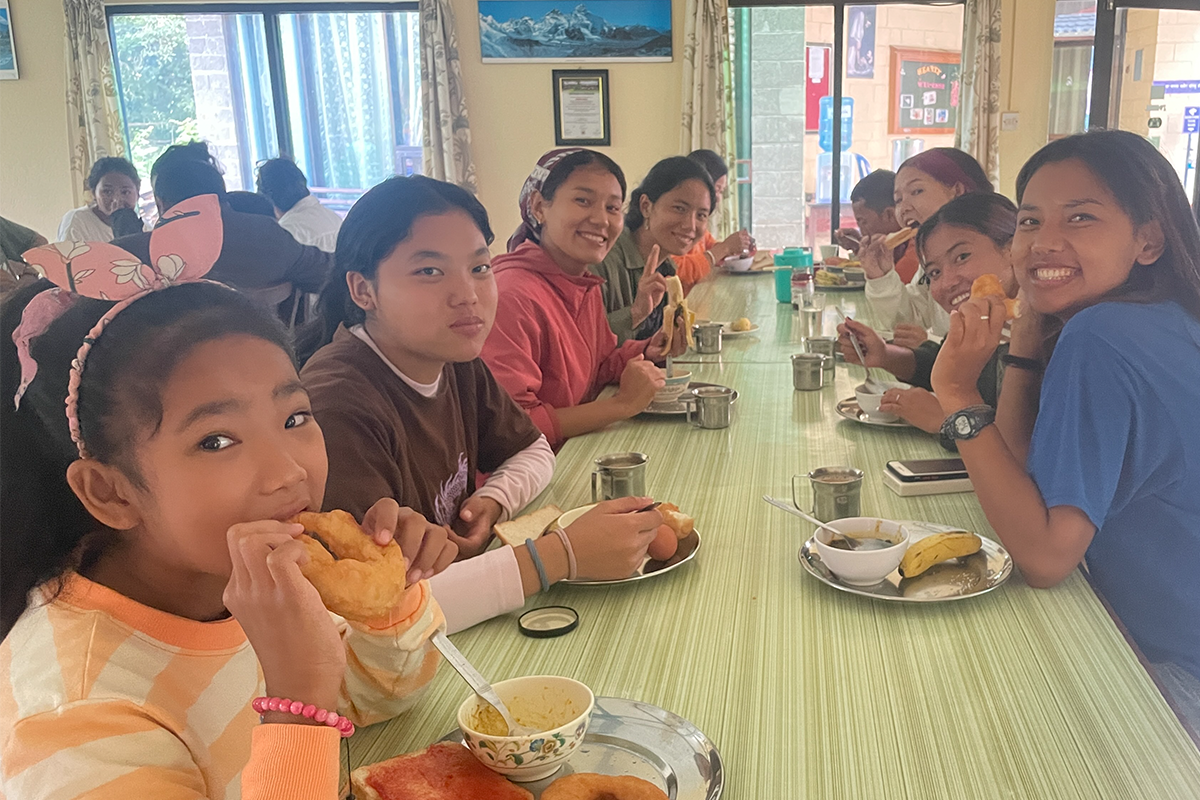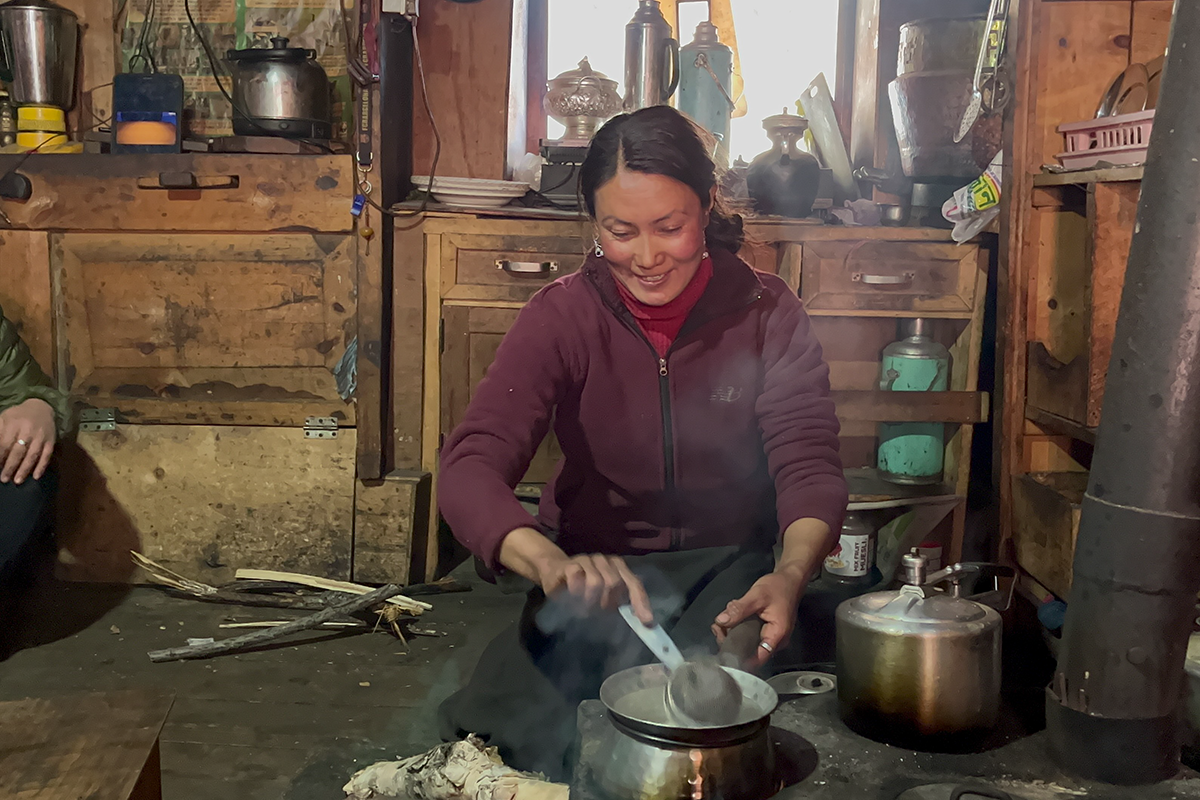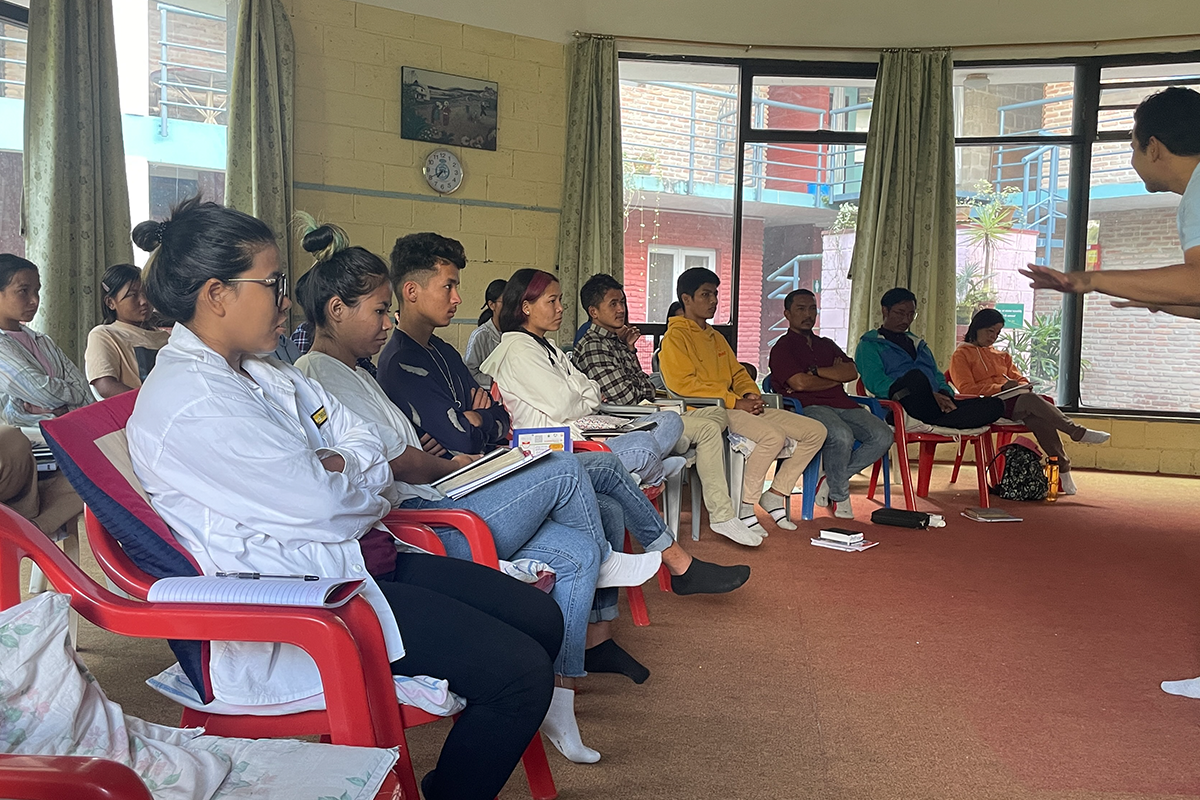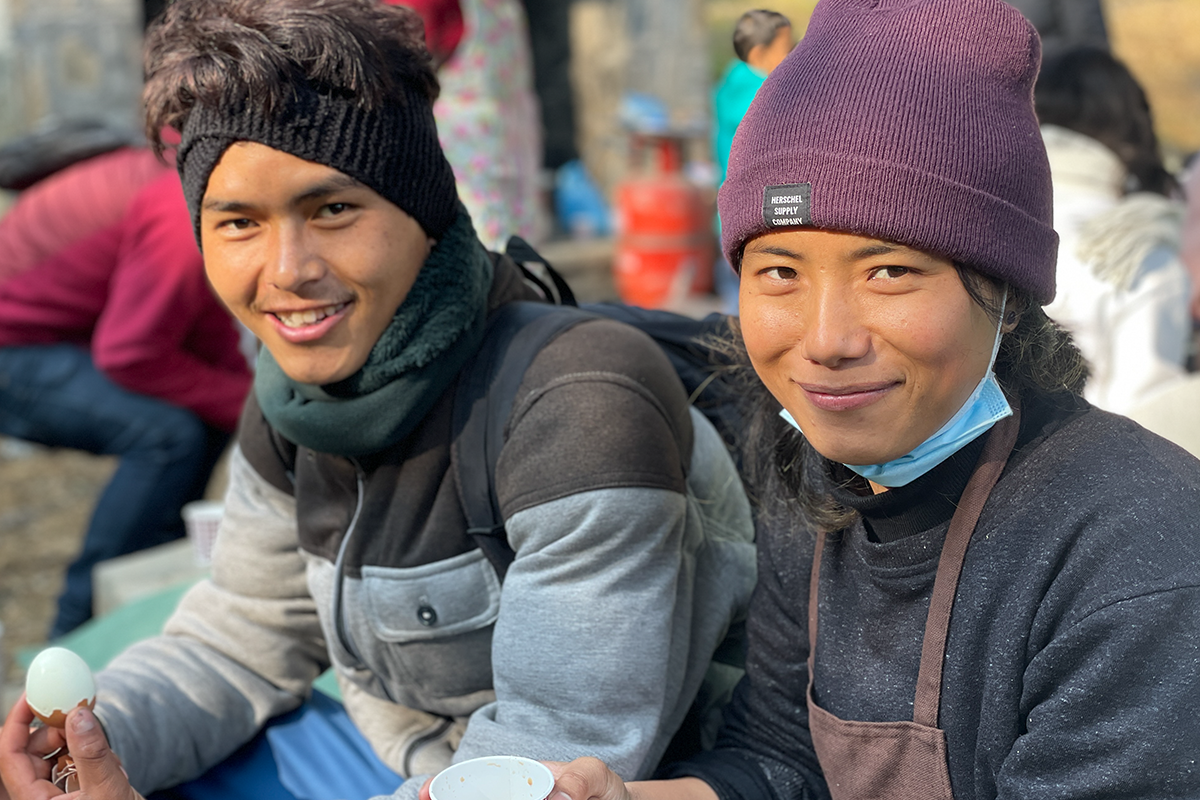Himalayan Education Center
The Challenge
Nepal is a landlocked country with the Himalayan mountain range to the north, home to 8 of the world’s highest mountains including Mount Everest. It is rich in natural beauty and historical architecture, monuments, and sculptures. Yet, it remains one of the poorest countries in the world. The country relies heavily on aid and tourism.
Even though the country was making strides in addressing the concerns of poverty, education, health, and housing, the pandemic pushed back much of the progress. “In 2021, Human Rights Watch found that the economic impact of the pandemic, together with school closures and insufficient social protection, pushed children into exploitative and dangerous child labor. Many children felt they had no choice but to work to help their families survive.” (HRW.org).
The issue for children is compounded for those living in rural regions. “Over half of Nepal’s poor population live in rural areas … From the age perspective, children represent the poorest sub-group since more than one in five children are multidimensionally poor (nearly 22%). This figure implies that nearly 2.2 million children are poor in Nepal.”(UNICEF).
This makes it more difficult for the poor to get adequate education. Public education is free up to the 8th grade, but the government hasn’t been able to allocate appropriate funds to employ and support teachers and staff (Kathmandupost.com). Schools rely on fees paid by the children’s guardians. Further education beyond 8th grade occurs in private schools, which are typically beyond the reach of many.
Poor families need help providing for the health and development of their children. Often only the boys can be sent off to school. The girls often drop out to help around the house. Both genders face the risk of trafficking if they cannot develop a knowledge base and professional skills that can provide them with employment and income.
A Solution
Himalayan Education Center serves Tibetan Buddhist background minority people groups located in a remote high altitude area in the Himalayas. Their education center for children and youth provides necessary resources such as safe housing, meals, and local help to this underdeveloped and deprived area. Quality nutrition and housing leads to healthier children and young people. The center provides this essential access to clean water, good food and quality sleep in a clean and dry environment.
They also provide scholarships to children for health and educational opportunities, leadership development (as well as community service), creative arts, and travel. Scholarships are given to children who are at high risk for trafficking or family neglect. Children are evaluated based on financial needs, family situation/background, medical needs, and access to education.
They also provide scholarships to young adults who have graduated or are near graduation and are ready for higher education. Himalayan Educational Center aims to raise these students to become carriers of transformation back to their communities.
Business Activities Geared Towards Good Health, Quality Education, and Housing Services.
Target: End preventable deaths of children and young adults by ensuring access to basic medical care.
Target: Increase the number of youth and adults who have vocational and language skills needed to obtain employment and decent jobs.
Target: Promote access to adequate, safe, and affordable housing and basic services for children in rural areas (adapted from 11.1)
Measured by:
SDG 3: Good Health and Well-Being
Number of Miste children who received basic health care each quarter. Please list the type of care (medicine, exam, vaccine, etc.).
Cost of medical care for the children listed above.
Number of physical/creative activities provided each quarter for each program. Please list types of activity (trips, classes, sporting activities, creative activities, etc).
School days missed due to sickness (goal is 90% attendance)
Number of children and young people who received quality food and accommodation in each program each quarter.
SDG 4: Quality Education
Number of children who received a Mitse Hostel full scholarship each quarter.
Number of children who received a Mitse Hostel partial scholarship each quarter.
Number of children who received a Next Step Program Internship scholarship each quarter.
Number of educational activities hosted each quarter for Miste & Next Step students. Please list the type of activity (Sporting activities, educational trainings/outings, character development)
Number of young adults and children who graduated from one program to the next this year. (Mitse = April / Next Step = June)
SDG 11: Sustainable Cities and Communities
Number of students in the Miste Hostel each quarter.
Number of young adults who are part of the Next Step (11-12) Program each quarter.
Number of young adults who are part of the Next Step Internship Program each quarter.
Number of Next Step (11-12) and Next Step Internship students employed post-graduation.
Himalayan Education Center serves Tibetan Buddhist background minority people groups located in a remote high altitude area in the Himalayas. Their education center for children and youth provides necessary resources such as safe housing, meals, and local help to this underdeveloped and deprived area. Quality nutrition and housing leads to healthier children and young people. The center provides this essential access to clean water, good food and quality sleep in a clean and dry environment.






What Does Your Donation Go Towards?
$365 USD provides a scholarship to 1 child per month at Mistel Hostel.
$200 USD provides a scholarship to 1 young adult per month for Next Steps Program








